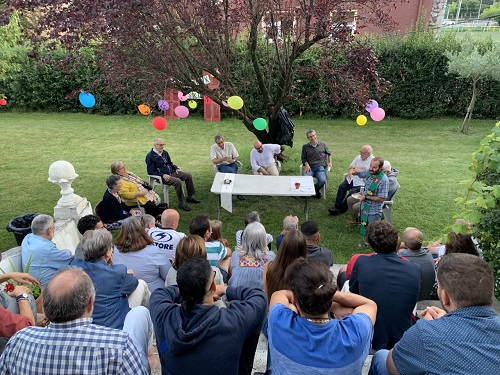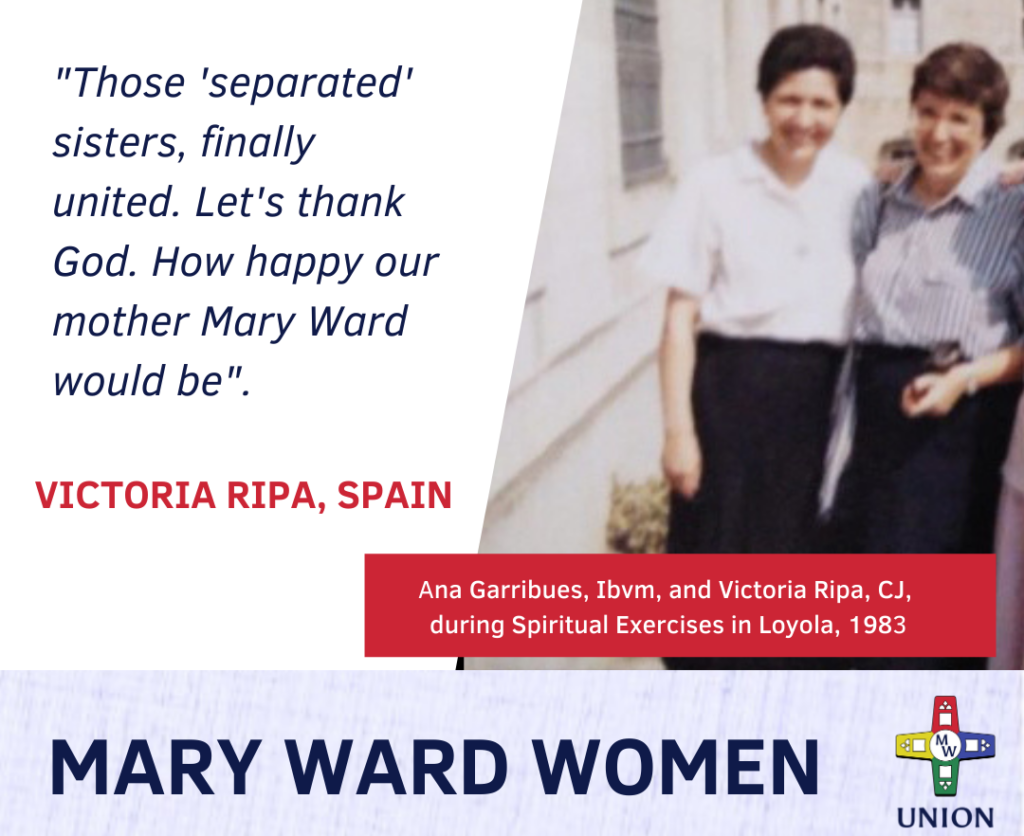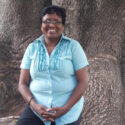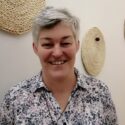Victoria Ripa, CJ, is currently living in San Sebastian, in a small community with three other sisters. Already a Jubilarian, she is doing now what she has been dreaming of all her life: working with people coming out of prison. She fights against the unfair structures that make our world a very difficult place for those more vulnerable and, in her free time, she collects medicinal plants.
We had a long and interesting conversation with Victoria that took us to remote places in the South of Spain in the early 60s and to those “living on the margins” today.
Tell us about your work with the people coming out of prison?
“Eight years ago, I started volunteering in Loyola Etxea a centre run by the Jesuits for the resettlement and reintegration of people coming from prison. We spend an afternoon together, we make dinner, we talk and joke… We are like family, the motto here is: “Whoever arrives in this house, is in her/his own house”. And, of course, the center also offers professional help from psychologists, educators, professional trainers…
The persons using this centre are mainly those who are in “third grade”: they have served most of their sentence and they can spend the day out of prison and go back just for sleeping. It is a communitarian proposal, an alternative presence”.
Besides, she goes to the prison one or two days a week. There, she mainly offer an active listening. Not judging, not asking for information, just listening to what they want to talk about. These visits are a very important preparation for their return to community. Finally, she also accompanies some families of those who are in prison, and her relationship with them sometimes goes beyond the centre. “I was invited to the first communion of the daughter of one of the prisoner’s; I’ve assisted at their weddings… It’s a really nice friendship”.

We usually celebrate the Eucharist together on Sundays, and that is a wonderful time. I’d love to see the same Spirit that I see there, in the churches. It’s incredible to see how they share, how they talk and ask for forgiveness… Everything is less formal, more spontaneous.
What is the background of these people?
They are mainly poor people, they come from the poorest neighborhood, and they are people broken from the unfair economic and social structures. Some of them end up taking drugs; and others are migrants, who have had a very difficult integration here. Most of them are men, but there are a few women too.
I think we live in a world where inequality and injustice are a scandal. We have to work against these unfair structures. I assist at demonstrations, appeal against evictions, and join Circles of Silence for migrants… We have to pass from “social charity” to “political charity”: change unfair structures and demand rights for people who need it more.
We live in a world where inequality and injustice are a scandal. We have to work against these unfair structures.
How did you get to know the Congregatio Jesu and what other ministries have you had?
I am from a small village in Navarra, and very near my home there was a Catholic Publishing house (Verbo Divino). That’s where my missionary vocation was born. One of my sisters was a nun in a congregation focused on health care, but I didn´t feel attracted to it. Later, I met the Congregatio Jesu, and I felt that was my place. I started my novitiate in Hernani (Guipuzcoa) and during my first years I worked in the Schools.
Later on, I was sent to Puerto Serrano, a small village in Cadiz, the other end of the country. Everything was different there: physical and cultural poverty were enormous. We had contact with the villagers, but we had difficulties with the local priest. He didn’t like our way of doing things and we finally closed the house. I wouldn’t have done the same today! But these were other times… Anyway, I have very good memories of those days, and it was then that I met the IBVM in Seville; we even took part in a formation programme in Bami school.
After leaving Puerto Serrano, we were very clear that we wanted to keep in contact with the rural life, so we founded a new house in Cantalapiedra, Salamanca. It was also a small village, and there were still many difficulties. Some of the villagers’ didn’t have any education at all, so we taught them how to read; others didn’t even have a toilet in their homes, and many of them were working in “illegal” conditions, so we encouraged them to ask for their rights. This made us to get into trouble: not everybody liked this and we even had problems with the local priest. Finally, again, we had to go away.
But soon after that, we found our place. Third time lucky! We started working with the Dominicans and other priests in Encinas de abajo, also in Salamanca. There, we were all of the same mind, we spent a very good time together and we did a lot of work. We were mainly in charge of the parish, we did everything, even baptisms, and everybody in the village was happy with that. We were there for about 20 years and it was a great mission. This time, we had to leave because we were aging and there were not enough active young sisters for the mission. And it was after that I came to San Sebastián, where I live now.

You have told me that you already met the IBVM. How was your relationship with them, what do you expect from the Union?
A few years ago, I ran into one of the IBVM sisters, Ana Garrigues, during a formation programme. We immediately got on well; we were together during all our free time. Since then, when I go to Madrid, I always stay with the IBVM and we enjoy time together. So, I have to say that even before the process I was looking forward to the Union. I think it is the logical thing to do, as we have the same Foundress and we are so similar.
The only difficulty that I see -well, it is not even a difficulty, just a small obstacle-, is how to unify the Constitutions. But that’s the only thing, and we will surmount it step by step, I’m sure.
Even before the process, I was looking forward to the Union.
To finish, I’d like you to share with the rest of sisters one of your hobbies or passions.
Well, I love medicinal plants. I first study them, so I can recognize them when I go to the mountains, I do collect them and I use them as presents for my friends and family. Sometimes I make creams, following my mother’s recipe, and I also make infusions, with Menta and Melissa. I have an intuition about plants: I know how to recognize them and I really love them.
My other passion is quiet and silence -even if I talk a lot!-. When I was a teacher, I liked to educate children -even the smallest ones- in silence and recollection. It wasn´t very usual those days, but it has become very fashionable nowadays.


